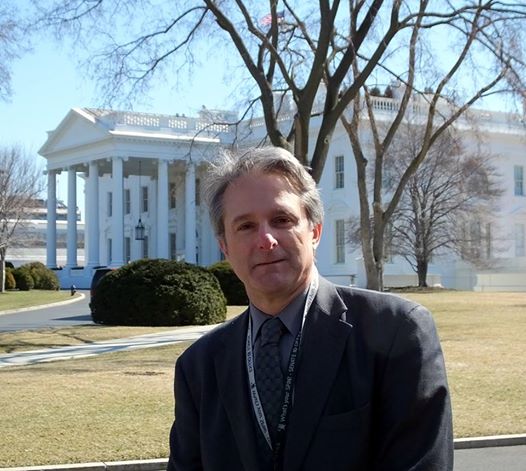BBG Watch Commentary
Former Voice of America (VOA) senior White House correspondent Dan Robinson, who had retired earlier this year, posted a comment under an article on The Hill website written by Al Pessin, a senior Voice of America foreign correspondent, currently based in London.
Pessin was expressing his private views and concerns about the United States International Communications Reform Act of 2014 (H.R. 4490).
SEE: America doesn’t need varnished truth, Al Pessin, The Hill, May 16, 2014.
ALSO SEE: ‘America doesn’t need varnished truth’ by Al Pessin in The Hill blog, and BBG Watch commentary, May 16, 2014.
Before retiring earlier this year, Dan Robinson spent 35 years at the Voice of America working under 15 directors. He served twice as an overseas correspondent in Asia and Africa, spent 8 years covering Capitol Hill, headed VOA’s Burmese Service, and was Chief White House Correspondent.
Last February, in a letter to members of the Broadcasting Board of Governors (BBG), Robinson described mismanagement at the Voice of America and how threats from a senior executive finally prompted him to retire.
SEE: Voice of America White House correspondent told BBG Board why VOA reporters are leaving, BBG Watch, February 28, 2014.
We are reposting his comment under Al Pessin’s article on The Hill blog. Both Pessin’s article and Robinson’s comment can be seen HERE.
COMMENT BY DAN ROBINSON
“Understandably, current and former VOA journalists fear that H 4490 could be the final nail in the coffin when it comes to VOA’s credibility as a news organization.
What they don’t discuss much is that the “agenda” — advancing U.S. foreign policy objectives, and now being stated much more clearly by lawmakers, national security objectives — has always been part of the picture.
I retired from VOA this past February after 35 years with the organization, the last four as Chief White House Correspondent, fed up with both institutional schizophrenia, mismanagement, and mistreatment of employees I saw playing out.
And I have concluded it is time to call a spade a spade, and put an end to the long running debate about the mission of VOA and all U.S. international media.
Indeed, the current BBG, headed by Jeff Shell, stated in its FY 2015 budget submission, that it “practices objective journalism, great journalism, but not as an end in itself. Rather, there is a purpose: to support U.S.national security interests.”
In recent years, rarely a board meeting took place without one or another official referring to the various pieces of U.S. international broadcasting as “national security assets”.
If VOA, and an envisioned Freedom News Network, are more broadly and publicly connected with U.S. policy by way of HR 4490, there will be no more masquerading as policy advocacy under the label of journalism, as one of my former colleagues has put it.
Importantly, this is also a time for the various professional journalist organizations in Washington and perhaps overseas, to state clearly where they stand when it comes to the Voice of America, and other U.S. government-funded media outlets.
Amid complaints by VOA journalists, HR 4490 is being bolstered with language to protect journalism there. But there is no getting around that the bill will associate VOA and the “surrogate” media outlets even more closely with the Executive Branch.
Just the fact that this is being discussed should probably prompt a review by professional organizations that accredit VOA and other outlet reporters.
In the House and Senate Radio/TV galleries, VOA occupies physical reporting space, but is restricted to non-voting status. Yet, guidelines state that members “not be employed in any legislative or executive department or independent agency of the Government.”
In contrast, at the White House VOA has full voting status in the White House Correspondents’ Association (WHCA). It also has one of a few much-coveted physical reporting booths in the White House media gallery, and has an even more coveted seat in the Brady Press Briefing Room.
Given HR 4490’s call for establishing a new International Communications Agency, intensified links between it and the Secretary of State and other government departments, and lawmaker’s call for it to more intensively serve public diplomacy and national security interests, it’s an appropriate moment for questions to be asked.”
